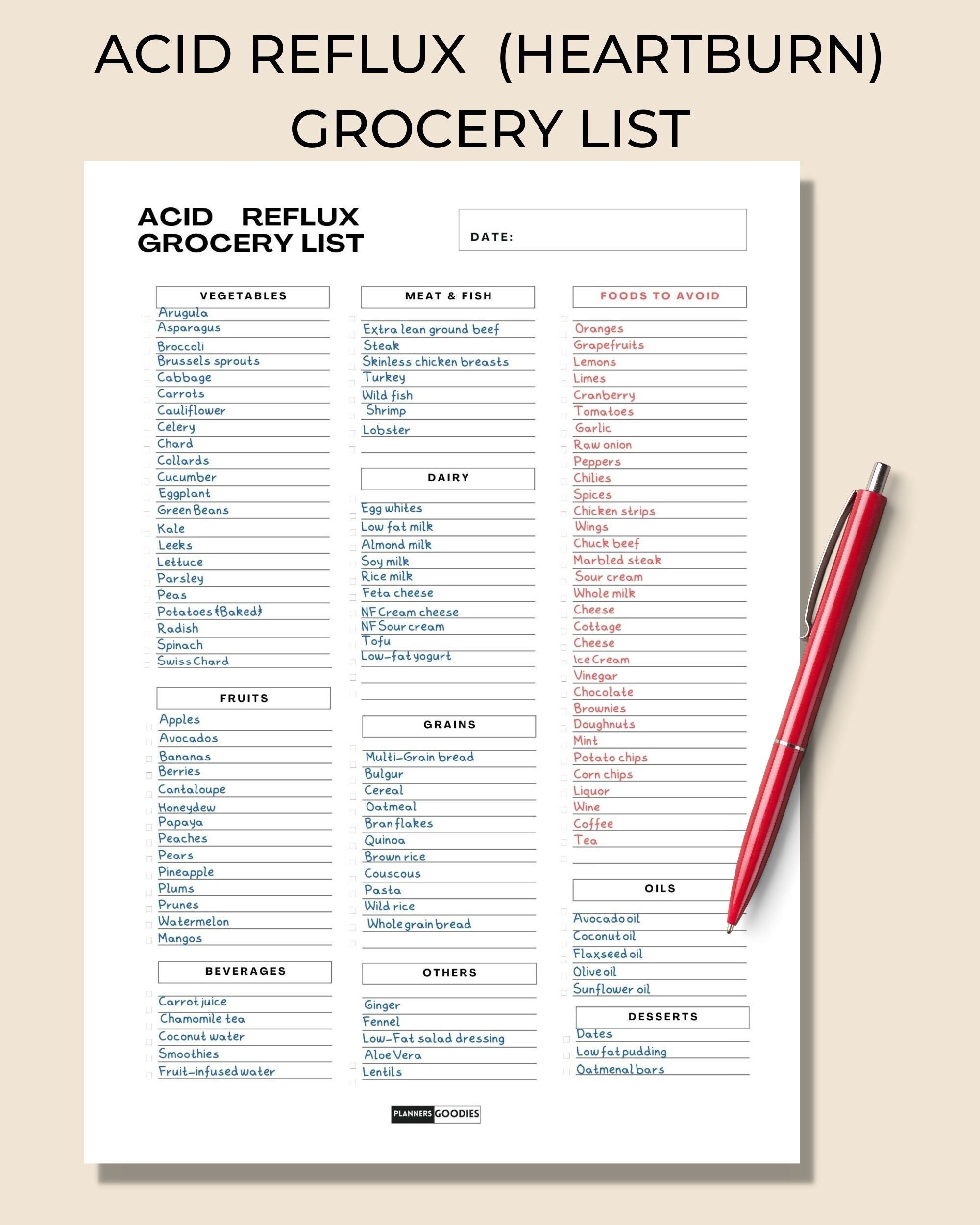GERD, or Gastroesophageal Reflux Disease, is a common condition that affects millions of people worldwide. It occurs when stomach acid flows back into the esophagus, causing symptoms such as heartburn, chest pain, and difficulty swallowing. Managing GERD often involves making dietary changes to reduce symptoms and prevent flare-ups. Having a printable guide can be helpful for keeping track of foods to eat and avoid. Here, we provide a printable GERD diet to help you navigate your way to better digestive health.
When following a GERD diet, it’s important to focus on consuming foods that are less likely to trigger acid reflux. Some foods that are generally well-tolerated by individuals with GERD include:
- Lean proteins such as chicken, fish, and tofu
- Non-citrus fruits like bananas, apples, and melons
- Whole grains such as brown rice, quinoa, and oats
- Vegetables like broccoli, carrots, and green beans
- Healthy fats from sources like avocado, olive oil, and nuts
Avoiding trigger foods is also crucial in managing GERD. Some common trigger foods to steer clear of include:
- Spicy foods
- Citrus fruits and juices
- Tomato-based products
- Chocolate
- Caffeinated beverages
It’s important to note that everyone’s triggers may vary, so it’s essential to pay attention to how your body reacts to different foods and adjust your diet accordingly. Keeping a food diary can help you track which foods worsen your symptoms and which ones are well-tolerated.
Aside from dietary changes, other lifestyle modifications can also help manage GERD symptoms. Eating smaller, more frequent meals, avoiding lying down immediately after eating, and maintaining a healthy weight are all important factors in reducing acid reflux episodes.
By following a GERD-friendly diet and making lifestyle changes, you can better control your symptoms and improve your quality of life. Remember to consult with a healthcare professional or a registered dietitian before making significant changes to your diet to ensure it aligns with your individual needs and health goals.
In conclusion, managing GERD through diet and lifestyle modifications is a proactive approach to reducing symptoms and improving overall well-being. Use this printable GERD diet as a guide to help you make informed choices about the foods you consume and take control of your digestive health.
